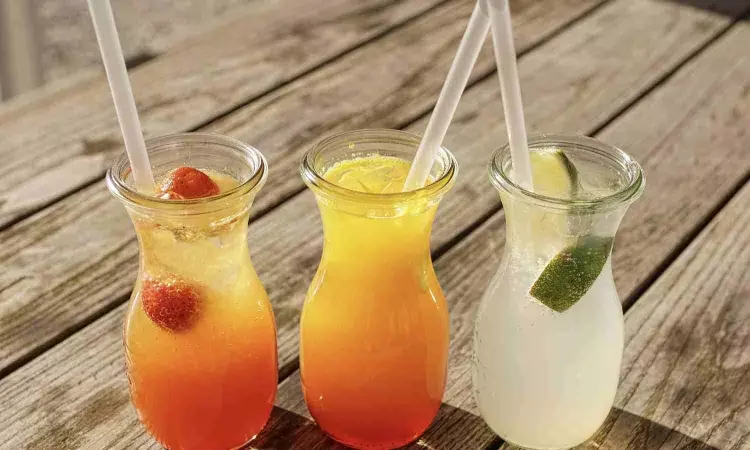- Home
- Medical news & Guidelines
- Anesthesiology
- Cardiology and CTVS
- Critical Care
- Dentistry
- Dermatology
- Diabetes and Endocrinology
- ENT
- Gastroenterology
- Medicine
- Nephrology
- Neurology
- Obstretics-Gynaecology
- Oncology
- Ophthalmology
- Orthopaedics
- Pediatrics-Neonatology
- Psychiatry
- Pulmonology
- Radiology
- Surgery
- Urology
- Laboratory Medicine
- Diet
- Nursing
- Paramedical
- Physiotherapy
- Health news
- Fact Check
- Bone Health Fact Check
- Brain Health Fact Check
- Cancer Related Fact Check
- Child Care Fact Check
- Dental and oral health fact check
- Diabetes and metabolic health fact check
- Diet and Nutrition Fact Check
- Eye and ENT Care Fact Check
- Fitness fact check
- Gut health fact check
- Heart health fact check
- Kidney health fact check
- Medical education fact check
- Men's health fact check
- Respiratory fact check
- Skin and hair care fact check
- Vaccine and Immunization fact check
- Women's health fact check
- AYUSH
- State News
- Andaman and Nicobar Islands
- Andhra Pradesh
- Arunachal Pradesh
- Assam
- Bihar
- Chandigarh
- Chattisgarh
- Dadra and Nagar Haveli
- Daman and Diu
- Delhi
- Goa
- Gujarat
- Haryana
- Himachal Pradesh
- Jammu & Kashmir
- Jharkhand
- Karnataka
- Kerala
- Ladakh
- Lakshadweep
- Madhya Pradesh
- Maharashtra
- Manipur
- Meghalaya
- Mizoram
- Nagaland
- Odisha
- Puducherry
- Punjab
- Rajasthan
- Sikkim
- Tamil Nadu
- Telangana
- Tripura
- Uttar Pradesh
- Uttrakhand
- West Bengal
- Medical Education
- Industry
Consumption of Sweetened Drinks Associated with Increased Atrial Fibrillation Risk: JAHA

A recent study explored the health risks associated with sweetened beverages by uncovering a concerning link between the consumption of sugary drinks and atrial fibrillation (AF), a common heart rhythm disorder. The findings were published in the journal of Circulation: Arrhythmia and Electrophysiology.
This study analyzed data from over 200,000 participants who were initially free of AF. This study by Ying Sun and team examined the association between the consumption of sugar-sweetened beverages (SSB), artificially sweetened beverages (ASB), pure fruit juice (PJ) and the risk of developing AF over nearly a decade of follow-up.
The findings revealed that individuals who consumed more than 2 liters per week of SSB or ASB underwent an higher risk of AF when compared to non-consumers. Specifically, the risk was increased by 10% for SSB consumers and by 20% for ASB consumers. Also, the individuals who consumed less than or equal to 1 liter per week of pure fruit juice showed a modestly lower risk of AF.
One of the most striking revelations of the study was the interaction between genetic predisposition and beverage consumption. The participants at high genetic risk for AF who consumed large quantities of ASB underwent a sharp 3.5-fold increase in AF risk, while the individuals at low genetic risk who consumed minimal PJ expressed a 23% reduction in risk.
This comprehensive research underscores that the association between sweetened beverages and AF risk persisted even after adjusting for genetic susceptibility which indicates the consumption of these beverages may predict AF risk independent of traditional risk factors. Overall, these findings carry significant implications for public health strategies to reduce the burden of cardiovascular diseases.
Source:
Sun, Y., Yu, B., Yu, Y., Wang, B., Tan, X., Lu, Y., Wang, Y., Zhang, K., & Wang, N. (2024). Sweetened Beverages, Genetic Susceptibility, and Incident Atrial Fibrillation: A Prospective Cohort Study. In Circulation: Arrhythmia and Electrophysiology. Ovid Technologies (Wolters Kluwer Health). https://doi.org/10.1161/circep.123.012145
Neuroscience Masters graduate
Jacinthlyn Sylvia, a Neuroscience Master's graduate from Chennai has worked extensively in deciphering the neurobiology of cognition and motor control in aging. She also has spread-out exposure to Neurosurgery from her Bachelor’s. She is currently involved in active Neuro-Oncology research. She is an upcoming neuroscientist with a fiery passion for writing. Her news cover at Medical Dialogues feature recent discoveries and updates from the healthcare and biomedical research fields. She can be reached at editorial@medicaldialogues.in


